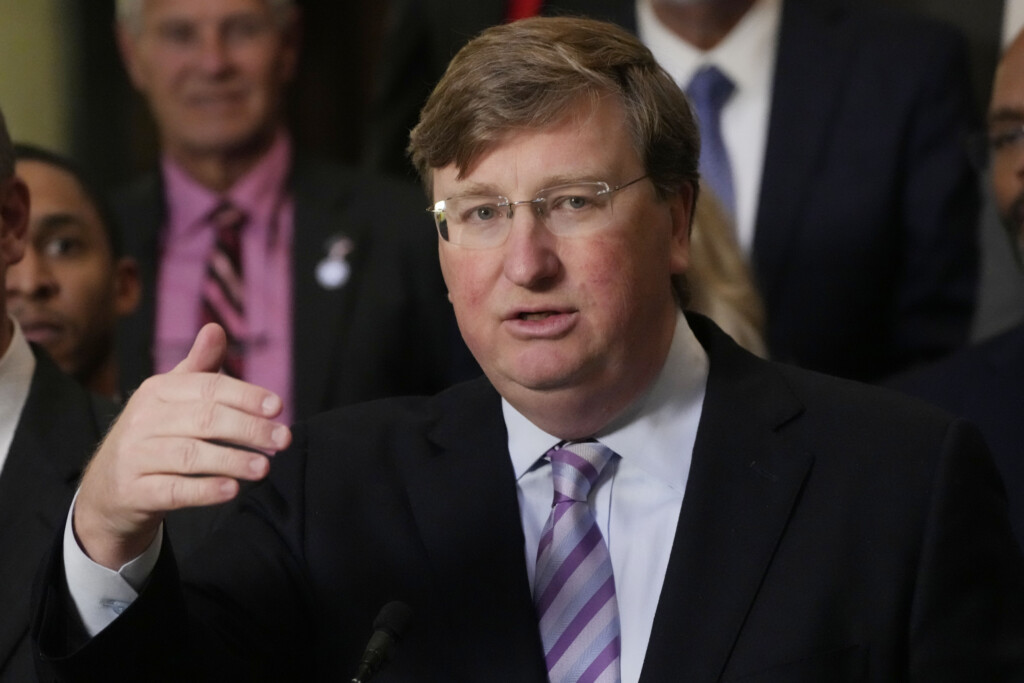Gov. Reeves again calls for phasing out personal income tax in his budget plan

JACKSON, Miss. (AP) — Mississippi Gov. Tate Reeves is renewing his call for legislators to phase out the state’s personal income tax over several years, and he is asking them to spend more money on economic development, highways, and the judiciary.
The Republican governor is also requesting additional spending on Capitol Police as the state-run agency is set to gain a wider territory to patrol within the capital city of Jackson.
Reeves on Wednesday released his budget proposals for fiscal 2025, which begins July 1.
The Republican-controlled Legislature could consider the document as they decide how to spend state money. But House and Senate budget writers have a long history of largely ignoring budget recommendations from governors, even when they’re from the same party.
Mississippi is in the process of reducing its personal income tax under a law Reeves signed in 2022. In his new budget proposal, he said he wants to erase the tax by 2029.
“Eliminating the income tax does not require cutting expenditures or raising taxes in other areas,” Reeves said. “Rather, it requires that our government lives within its means.”
The expansion of Capitol Police is mandated in a law enacted last year over objections from some Jackson residents who said it was a way for the white and Republican-controlled state government to steal power from local elected officials in the majority-Black city that is governed by Democrats. The Capitol Police territory expands on July 1.
Reeves — who said during a 2022 appearance in Hattiesburg that it was “as always, a great day to not be in Jackson ″ — offered some praise for the capital city in his budget document.
“It is a wonderful place filled with extraordinary people,” Reeves said Wednesday. “It is a cultural hub for our state, and every person who lives or visits there deserves to feel safe. Despite the vast positives Jackson has to offer, it continues to grapple with a serious crime problem.”
Writing a state budget is a months-long process, and it usually includes an agreement between the governor and legislative leaders on a revenue estimate — an educated guess of how much money the state can expect to collect, based on economic trends.
However, Reeves refused to agree to a proposed revenue estimate of about $7.5 billion when he met with top lawmakers in November. That is somewhat less than the state is spending in its current budget year. The governor said he thought the figure was “arbitrarily” low, and that could hurt his push for an income tax cut. His budget document Wednesday proposes spending of more than $10 billion in state money.
The 14-member Joint Legislative Budget Committee usually releases its initial spending recommendations in December, but it chose not to do so because of the disagreement with Reeves over the revenue estimate.
The House and Senate have a deadline in early May to decide on spending for education, health care, prisons, and other state government services.




